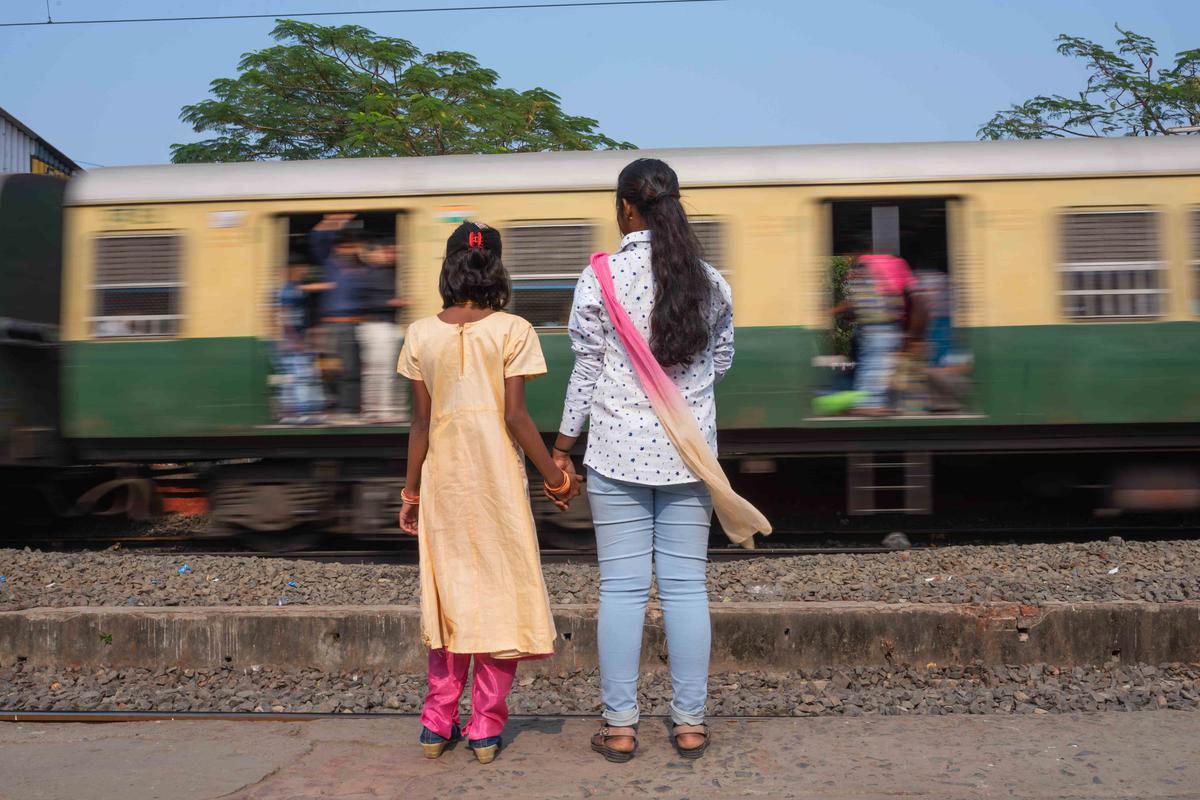
Photo book ‘We Cry in Silence’ investigates cross-border trafficking
The Hindu
Photojournalist Smita Sharma’s book ‘We Cry in Silence’ lays bare the patriarchy that makes girls an easy target for traffickers
In 2015, during a field trip to South 24 Parganas district of West Bengal, Delhi-based photojournalist Smita Sharma met a 17-year-old girl who had returned home after she was rescued from a brothel in Delhi. The meeting sparked a seven-year investigation on cross-border trafficking that culminated in the photo book We Cry in Silence, which will be launched at the Indian Photo Festival 2022 in Hyderabad.
The multilingual photo book — in English, Bengali and Hindi — published by France-based FotoEvidence, is part of a year-long campaign to reach out to communities in trafficking hotspots in Bangladesh, Nepal and India through educational programs.
In an interview with The Hindu, Smita recalls the meeting: “I met a girl who I shall call Meena (name changed to protect identity). I had assumed that she had been kidnapped or trapped by someone who would have taken the time to win her trust. What I learnt, however, left me shocked and distraught.” Meena had trusted a young man she barely knew and had decided to leave home.
Most cases of trafficking are not by forceful abduction, says Smita, as it is often thought. Instead, the girls are trapped with false promises of marriage, love, jobs and an escape from the daily grind of their dreary lives, unaware of the brutalities that lie ahead.
Meena had received a phone call from a man named Raj who told her that he loved her and wanted to meet her. He met her with an elderly couple whom he introduced as his parents and proposed marriage. He mentioned that his sister ran a successful business selling sarees in Delhi and said he would like to join her, along with Meena. The elderly couple presented Meena with a sari and said they wanted her to be a part of their family. The next day, Meena was on a train bound for Delhi. But, on reaching Delhi, Raj sold her to another trafficker.
Escape from patriarchy
As she began to dig more into human trafficking, Smita realised how vulnerable these girls are; all they want is love and affection. A peek into their daily lives, she says, gives an idea of why they are desperate to leave home. “Girls are expected to start working in the wee hours of the morning. While the boys and men of the house slept, the girl would travel miles to fetch water. On returning, she would need to cook for the family, wash the utensils, clean the house and do the laundry. A handful of these girls would be lucky enough to attend school. After school, they lend a hand with domestic chores or at the farm.”

Andhra Pradesh CM Chandrababu Naidu inaugurates CNG, PNG projects in Rayalaseema region. Andhra Pradesh has the unique distinction of being the second largest producer of natural gas in India, thanks to the Krishna-Godavari (KG) Basin, he says, adding the State will lead the way towards net-zero economy.










